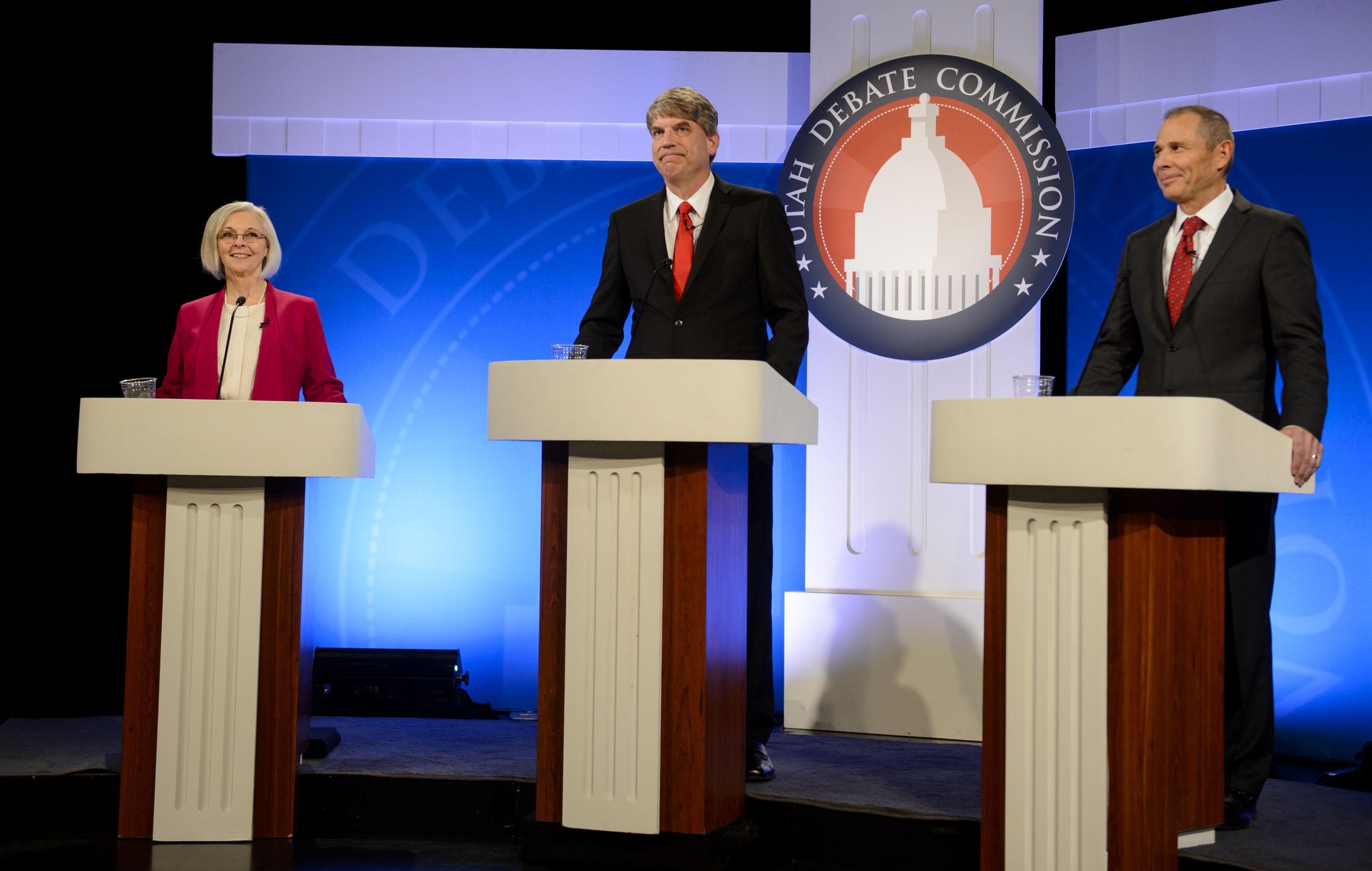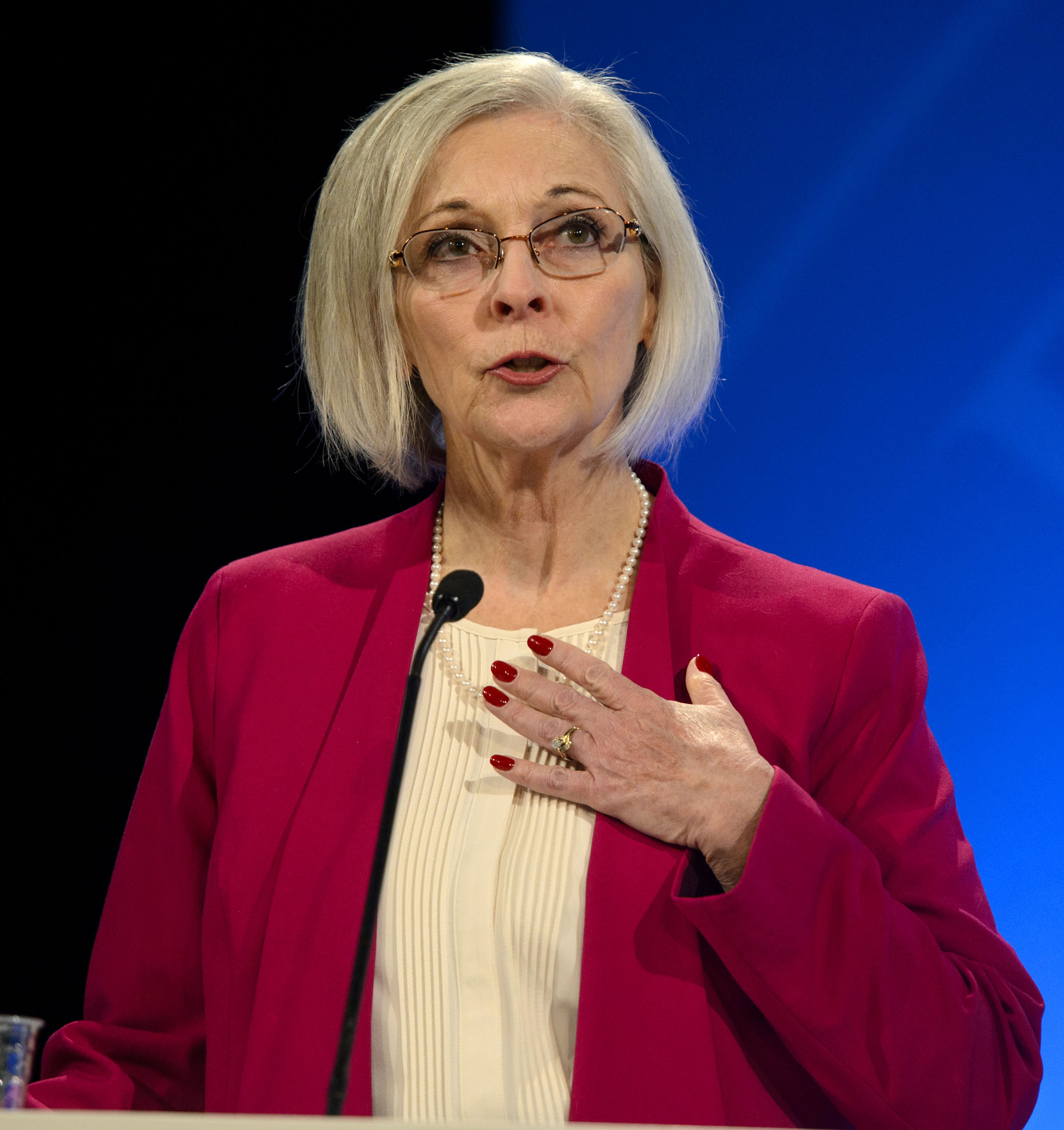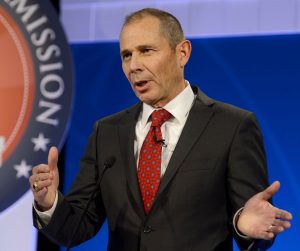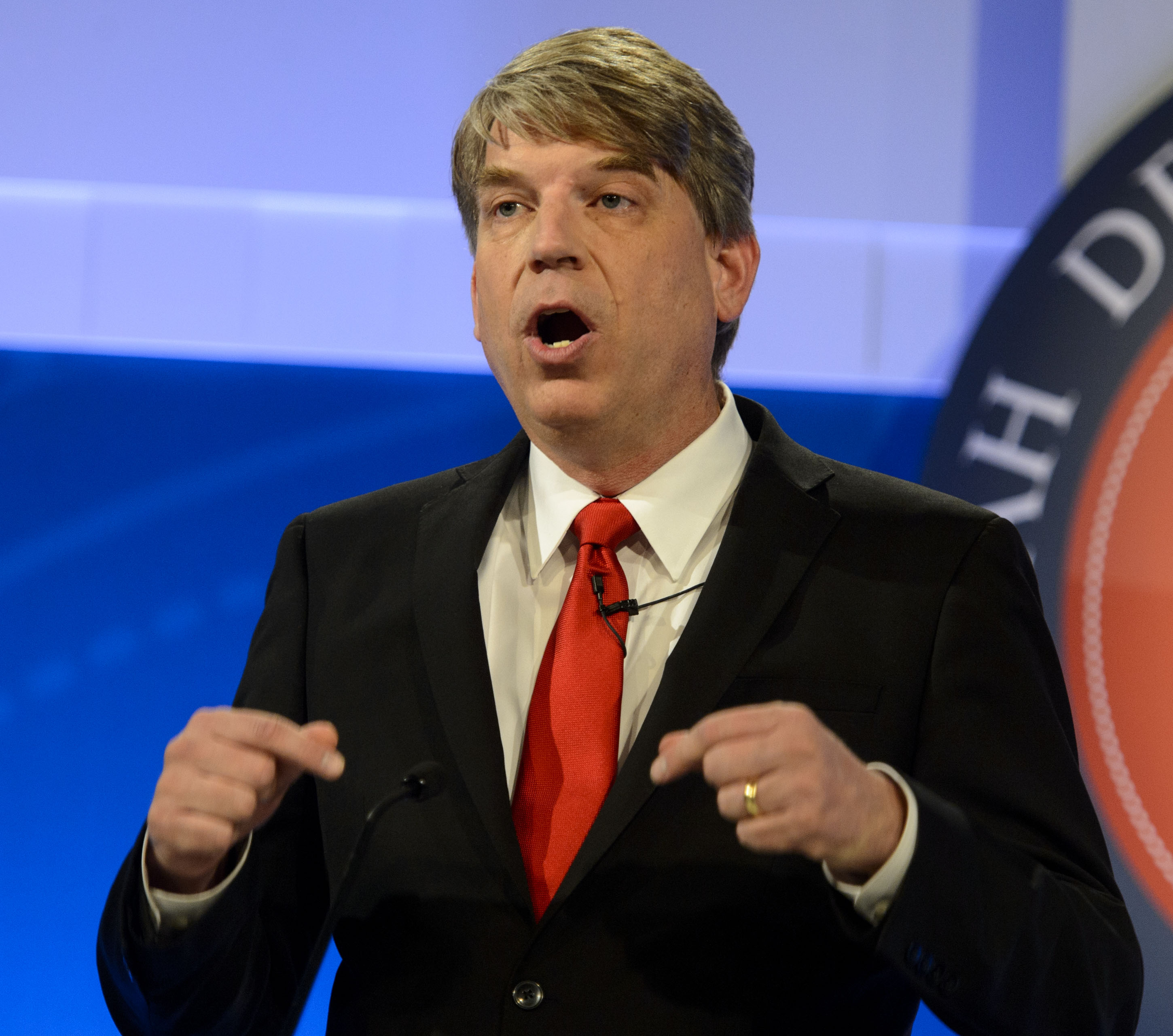
The BYU Broadcasting Building buzzed with political energy on Oct. 18 as attendees prepared for the Utah 3rd Congressional District’s Special Election Debate.
Candidates Dr. Kathie Allen, Jim Bennett and Mayor John Curtis began by delivering opening statements.
Allen addressed the audience first, reminding listeners of her experience in health care.
“I am a mom, a grandma, a family doctor. Labels divide us, what matters is values — Utah values: compassion, community cooperation, but above all honesty,” Allen said.

The Democratic nominee said she was distinct from her opponents because of her history in the medical field and would apply her unique skill set to make a difference in Congress, should she be elected Nov. 7.
Next, Jim Bennett of the newly formed Utah United Party delivered his opening statement. He highlighted his family history in politics, focusing on an ancestor who was a contemporary of Abraham Lincoln.
Bennett said while he may look like his great great-grandfather, he was running for office “like Abraham Lincoln, who at the time was a third party candidate.”
Bennett continued to tie himself to Lincoln, and throughout the debate said a third party candidate like himself would be best suited to make change happen in Congress.
Mayor John Curtis addressed the audience last and said his success as Provo mayor was evidence he would have similar success in Congress, should he win the election.
“I hope tonight to show you that I’m not only right on the issues, but that I am a leader, a problem solver, somebody that gets things done,” Curtis said.
The opening statements set the tone and theme for each candidate as they headed into the heart of the debate.
Some topics, like restrictions on “bump stocks,” elicited more uniform responses from the candidates, while other topics like relations with North Korea and the Trump administration ignited heated debate and varying opinions.
The most divisive topic of the night was health care.
Bennett addressed the topic in question by sharing a personal story about an injury his daughter sustained and his experience trying to find her care.

“When we were in the emergency room, we were not in a position to be able to negotiate the lowest price. And so that’s the kind of approach we need to take to healthcare,” Bennett said. “People are going to need healthcare, we need to figure out the most efficient way to be able to provide it for them.”
Curtis discussed past failed health care plans and said he would support real solutions to the issue.
“I’ll support legitimate bipartisan efforts to finally fix this, to lower health care costs. Illnesses are not republican and they are not democratic. We’ve got to work together to solve this,” Curtis said.
Allen referenced her experience as a health care professional and said she is against a free market in regards to health care.
“The free market is never going to solve health care,” Allen said.
The topic of free market and health care then spun into an impassioned discussion where Curtis said he favored a free market in response to Allen’s statements.
“I want the free market forces at work when I go to shop,” Curtis said.
Bennett said “the idea of going shopping when your daughter has been injured and may never walk again if you don’t get care right away is just stunning” and suggested a more moderate solution to health care, as he said both Democrat and Republican solutions had failed previously.

Other controversial topics were President Trump’s agenda and immigration.
Bennett and Allen stood against Trump’s policies on immigration and criticized Republican candidate Curtis for his stance.
“There is no more reprehensible element of the Trump agenda than their immigration policies,” Bennett said. “A wall becomes a xenophobic symbol that does nothing to solve the problem, costs a great deal of money and represents the worst of who we are as Americans.”
Allen said she did not want to build a wall and said legal immigration should be easier.
Bennett then continued with a rebuttal in which he said he was unsure of Curtis’ stance regarding a wall, despite having debated with him previously.
“The fact of the matter is, when you get to the floor of the house of representatives and they call for a vote as to whether or not you want to fund a wall, it’s not a multiple choice question. You have to vote yea or nay. And to this day I do not know if John Curtis would vote yea or nay for a border wall,” Bennett said.
Curtis did not have an opportunity to respond to his opponents’ words.
Other topics included tax reform, U.S. negotiations with North Korea, the Department of Education and the Antiquities Act, and Senator Rob Bishop’s newly proposed bill on public lands.
Host David Magleby then closed the debate urging the audience to cast an educated vote.
“Voting is a right and a privilege. Please inform yourself and cast your ballot,” Magleby said.
According to the Salt Lake Tribune, Curtis will head into the Nov. 7 election leading the polls at 46 percent followed by Allen at 19 percent, and Bennett at 9 percent.




